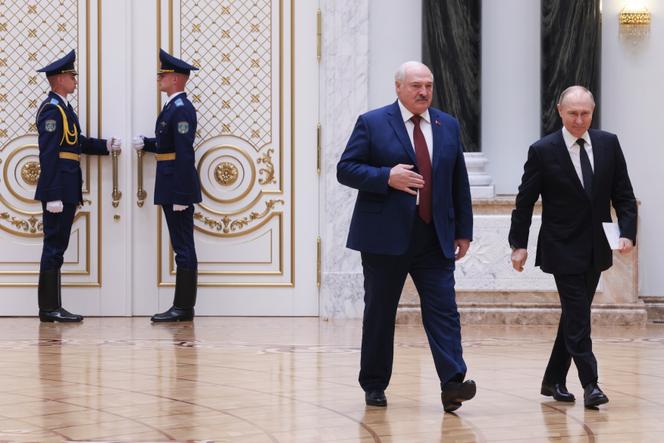
Belarus, Moscow’s number-one ally in its war with Ukraine, has continued waging its campaign of terror. Chief of the General Staff Pavel Muraveiko said the country would use tactical nuclear weapons deployed on its territory by Russia if Belarusian sovereignty or independence were threatened, state media outlet Belta reported on Sunday, June 30. The previous day, the Belarusian army accused Ukraine of deploying its forces to their shared 1,084-kilometer border to commit “acts of sabotage and terrorism,” an allegation that remains unverified.
In the summer of 2023, Russia deployed tactical nuclear weapons in Belarus, a country that is a neighbor of Ukraine and NATO members Poland, Latvia and Lithuania. A year later, in May and June, Minsk and Moscow each held exercises designed to train their troops to use them. Russia has maintained that the weapons deployed in Belarus remain under Moscow’s military control.
Belarusian and Russian leaders Alexander Lukashenko and Vladimir Putin have repeatedly raised the nuclear threat to discourage the West from stepping up its support for Ukraine. Less powerful than nuclear-tipped intercontinental ballistic missiles, which can destroy entire cities, tactical nuclear weapons are intended for use against troops on the battlefield. Should Moscow decide to use them, they would make it faster and easier for Russian aircraft and missiles to reach potential targets in Ukraine. Their deployment has also expanded Russia’s targets to include several NATO member countries in Europe.
Belarus has played a key role in the war in Ukraine. On February 24, 2022, Russian troops set off from Belarus to attack the country. In June 2023, Brussels condemned this military support and called on Minsk to “stop allowing Russian armed forces to use its territory, including for the deployment of tactical nuclear weapons.” Calls that went unheeded.
A social media like can lead to prison
On Saturday, June 29, the European Union (EU) imposed new sanctions on the country for its involvement in the war. These measures, which have targeted the economy, are intended to “reflect several of the restrictive measures already in place against Russia,” and to “address the issue of circumvention [of sanctions against Moscow] stemming from the high degree of integration existing between the Russian and Belarusian economies,” said the European Council in a statement. EU exporters will be required to include a “no-Belarus clause” in future contracts, prohibiting the re-export to Belarus of sensitive goods and technologies, combat equipment, firearms and ammunition.
You have 57.68% of this article left to read. The rest is for subscribers only.